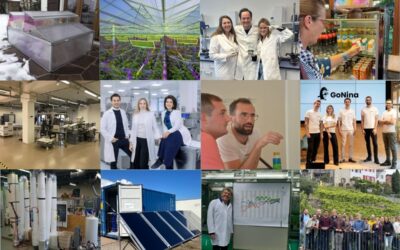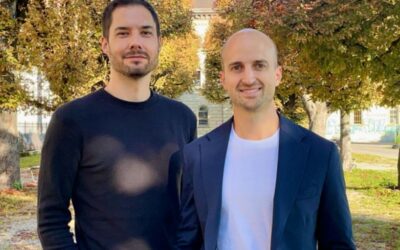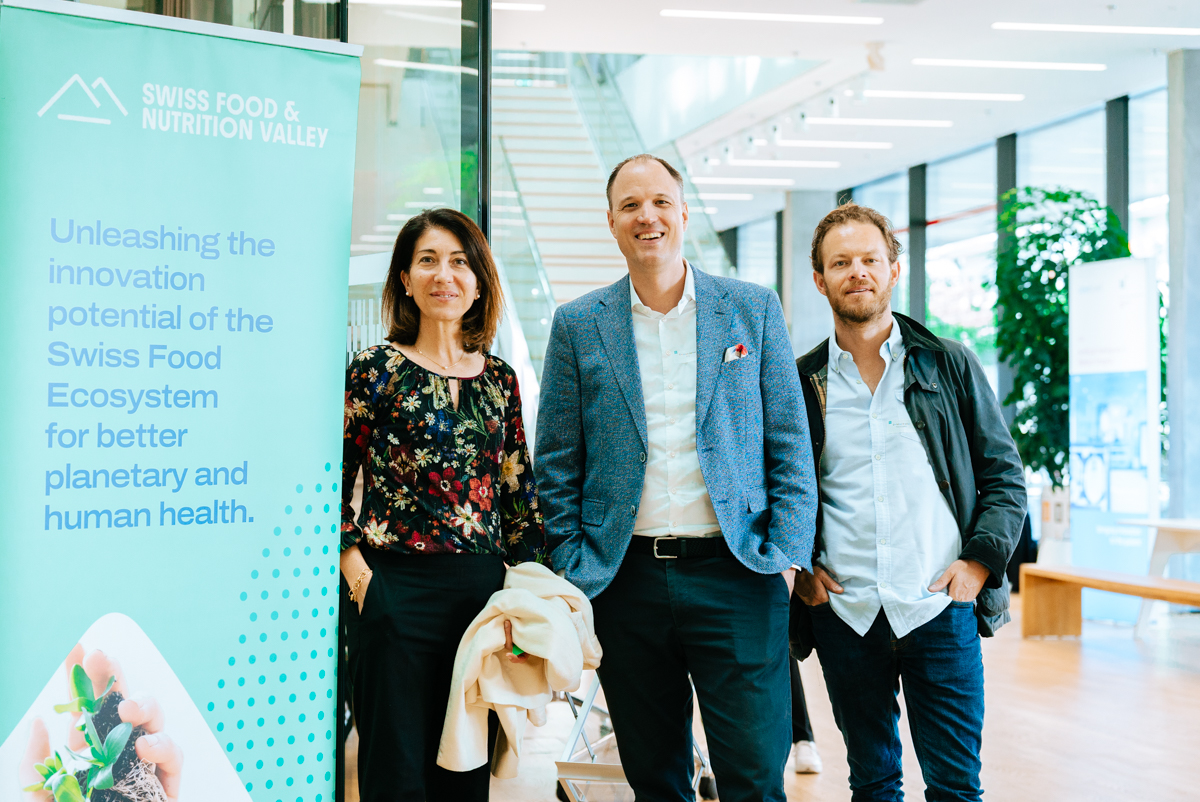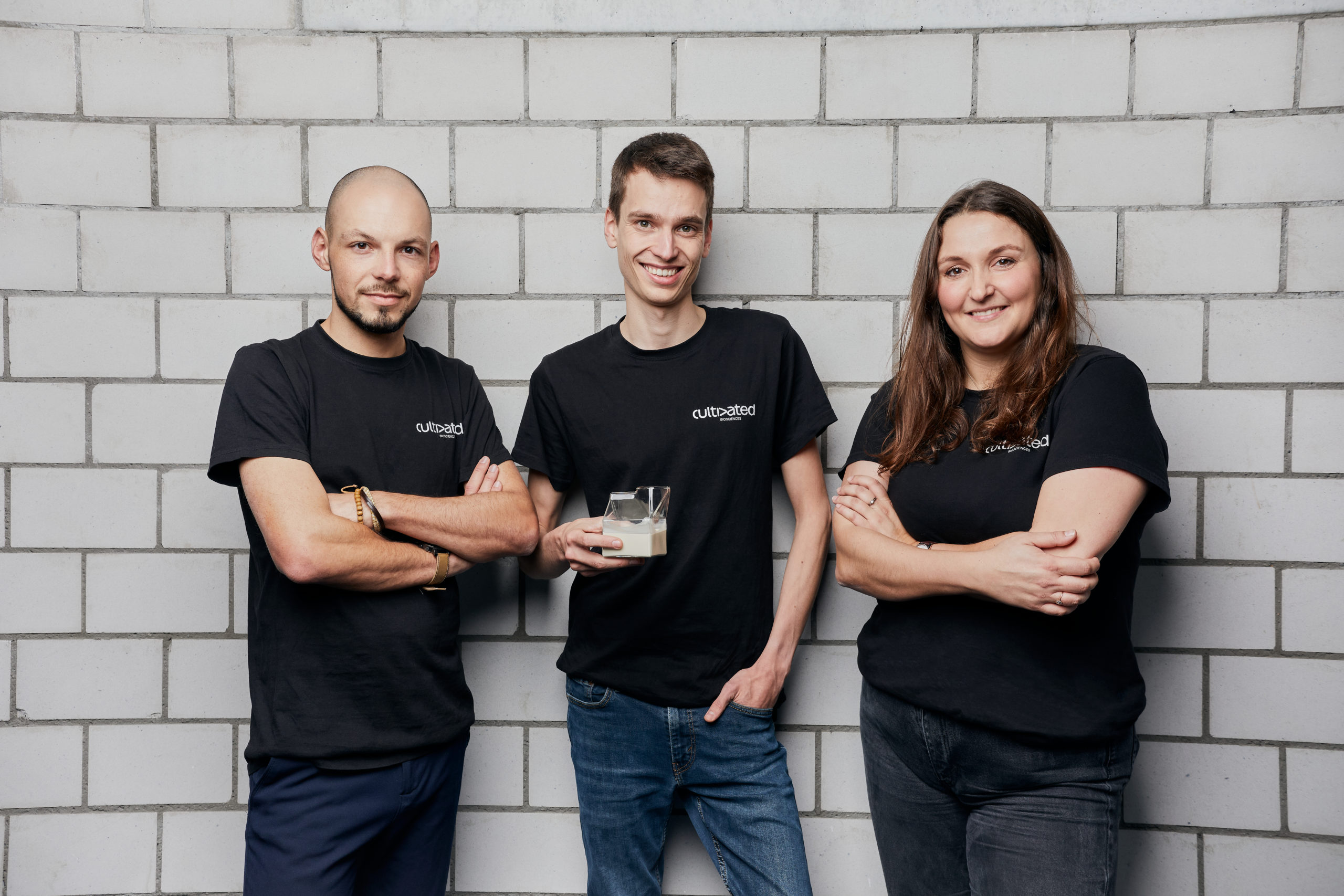We often hear that the future of food...
Bühler’s Grain Innovation Center, a powerhouse for innovation, opens its doors
Bühler’s Grain Innovation Center, a powerhouse for innovation, opens its doors

Swiss technology group Bühler today inaugurates its new Grain Innovation Center (GIC) in Uzwil, a trailblazing facility. The new application center marks a significant milestone in the field of grain processing innovation, combining high-tech solutions with the company’s long-standing expertise in a space that promotes collaboration. The GIC is carefully designed to empower customers from the food and animal nutrition industries to innovate and improve their processes, ensuring they stay ahead of the latest trends in milling and remain competitive in their rapidly evolving markets. Additionally, customers and partners have access to the comprehensive Application & Training Center (ATC) hub in Uzwil, which connects entire value chains.
“The Grain Innovation Center is the latest addition to Bühler’s expanding network of Application & Training Centers in Uzwil,” says Johannes Wick, CEO of Grains & Food at Bühler Group. “We cover the entire range of production, from various raw materials to a wide array of finished products. In doing so, we provide our customers with exceptional flexibility and the choices they need to address increasing challenges and revolutionize their markets.”
With changes in global grain supply chains, nutritional requirements, transparency of sourcing and pricing pressure, the milling industry faces a challenging environment. These include maintaining flour quality with variable raw materials, improving production and energy efficiency, managing safety issues, or finding and keeping well skilled professionals. Adopting new technologies – such as automation, IoT, and data analytics – and addressing environmental concerns add complexity, while growing consumer demand for healthier and more sustainable products has driven a faster pace of innovation.
For this purpose, Bühler has designed a fresh, modern, and high-tech milling technology facility – the GIC. The new building is the successor to Bühler’s former Grain Technology Center, which has served the milling industry since 1951. The five-story facility spans 2,000 square meters and features state-of-the-art infrastructure along with over 70 pieces of cutting-edge equipment from Bühler and its partners. The GIC works as a leading-edge arena for customers to experiment, innovate, and find concrete solutions to meet their specific needs.
A high-tech “playground”
The GIC is equipped with the latest solutions and technologies for processing grain and pulses. Customers can conduct tests on food and animal feed and can develop new processes and solutions in various areas, including cleaning, optical sorting, grinding, sifting, mixing, protein shifting (a mechanical process that increases the protein concentration in plant-based raw materials). Additionally, they can work on hygienization and pelleting, as well as dehulling, peeling, and pearling of grains and pulses. “The GIC offers an unparalleled environment where customers can develop tailored processes and witness the extensive capabilities of Bühler’s diverse portfolio firsthand,” says Stefan Birrer, Head of Business Area Milling Solutions at Bühler. “The GIC is not just a facility, it’s a symbol of our commitment to helping customers succeed in an industry that is continuously evolving.”
Food trials encompass a variety of raw materials, including cereals, herbs, spices, and pulses. The GIC includes the technology and expertise to conduct trials on local and ancient grains – raw materials that can play a vital role in improving food security in many countries. Leveraging its extensive know-how in processing, the GIC also offers testing for various other commodities, including coffee, nuts, and insects. Additionally, the Application & Training Center caters to non-food bulk solids, such as plastics and absorbers.
Feed trials can be performed with production capacities of up to 5 tonnes per hour, covering the entire production line or individual process steps. “One of the main advantages of the GIC is its ability to provide not only detailed data that enable continuous and precise monitoring of the process but also the physical and chemical properties of the product at every stage of production and under different process conditions,” says Lothar Driller, Department Manager Feed Application Center and Trainings at Bühler.
The side streams generated by the GIC, such as wheat bran and rice husks, corn husk, pea hulls, and screenings from cleaning, will feed Bühler’s Energy Recovery Center, which provides heating for Bühler offices in Uzwil. Customers can also use this Center to explore the potential of utilizing side streams through energy recovery, which can lead to the reduction of their carbon footprint, waste, and energy costs.
Part of a larger innovation hub
The GIC is part of Bühler’s Application & Training Centers hub, which encompasses the four recently launched ATCs – Flavor Creation Center, Food Creation Center, Protein Application Center, and Energy Recovery Center – and other centers that have been in operation for several years, such as the Extrusion Application Center and Pasta Application Center.
With this innovation hub, Bühler can provide full, farm-to-fork coverage, encompassing entire value chains, an environment that is unique in the market. “Our broad business stretches across the entire protein value chain, and we have meticulously implemented a strategy for partnerships, closing internal gaps and enhancing material flow,” says Rudolf Hofer, Head of the Grain Innovation Center.
Training and upskilling talent
The modernization project also includes Bühler’s Milling Academy and the Swiss Institute of Feed Technology (SFT), both of which will be housed in a new structure strategically located next to the GIC to increase synergies. This new Milling Academy and the SFT facility will have classrooms, open learning areas, meeting rooms, a customer service corner, new laboratories, a workshop area, and a larger changing room for customers and employees.
The new building will enable Bühler’s team and customers to adapt and develop the skills needed to keep pace with a quickly changing and increasingly challenging work environment. About 1,000 customers and 150 internal employees were trained in more than 120 training courses offered by the Milling Academy and the Swiss Institute of Feed Technology in 2023. The new training facility is due to be operational by January 2025.
About Bühler
Bühler is driven by its purpose of creating innovations for a better world, balancing the needs of economy, humanity, and nature in all its decision-making processes. Billions of people come into contact with Bühler technologies as they cover their basic needs for food and mobility every day. Two billion people each day enjoy foods produced on Bühler equipment; and one billion people travel in vehicles manufactured using parts produced with Bühler solutions. Countless people wear eyeglasses, use smart phones, and read newspapers and magazines – all of which depend on Bühler process technologies and solutions. Having this global relevance, Bühler is in a unique position to turn today’s global challenges into sustainable business.
As a technology partner for the food, feed, and mobility industries, Bühler has committed to having solutions ready to multiply by 2025 that reduce energy, waste, and water by 50% in the value chains of its customers. It also proactively collaborates with suppliers to reduce climate impacts throughout the value chain. In its own operations, Bühler has developed a pathway to achieve a 60% reduction of greenhouse gas emissions by 2030 (Greenhouse Gas Protocol Scopes 1 & 2, against a 2019 baseline).
Bühler spends up to 5% of turnover on research and development annually to improve both the commercial and sustainability performance of its solutions, products, and services. In 2023, some 12,500 employees generated a turnover of CHF 3.0 billion. As a Swiss family-owned company with a history spanning 164 years, Bühler is active in 140 countries around the world and operates a global network of 105 service stations, 30 manufacturing sites, and Application & Training Centers in 25 locations.
Never miss a Swiss food innovation morsel.
Latest News
From pivot to purpose: how Switzerland turns careers into food system change
Five years of SFNV: Meet the faces behind the Valley
Innovation in food systems requires...
Five years of innovation: Six Swiss startups share their journeys
This year, Swiss Food & Nutrition...
FOOD FOUNDERS Studio raises CHF 1.2M, launches foodtech venture to address plant-based taste challenges
Two years after its founders set out...








